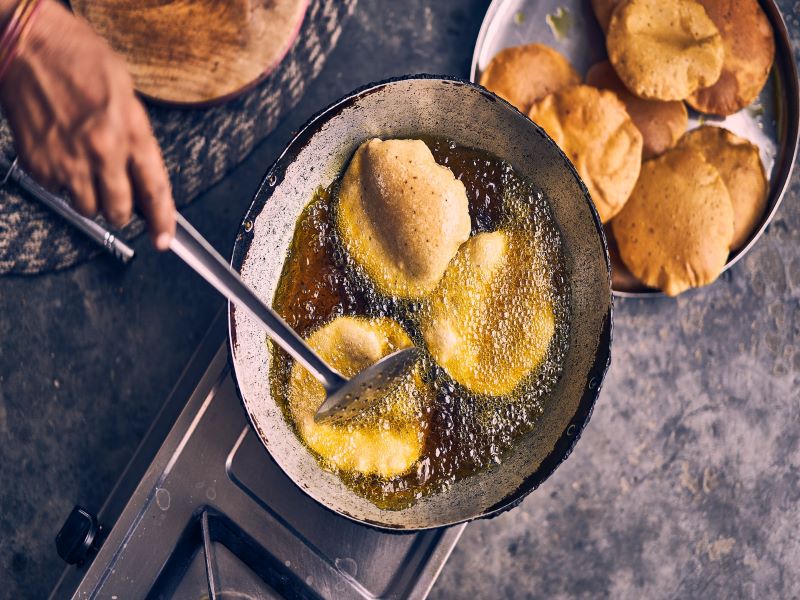 Russia-Ukraine Crisis
Russia-Ukraine Crisis Skyrocketing cooking oil prices to worsen food inflation situation
Amid Russia’s invasion of Ukraine coupled with U.S. and European sanctions that ensued and consequent disruption in the supplies of key commodities like grains and edible oils, shoppers need to prepare to dish out more money on groceries.
With Ukraine's port closed, transport and logistics have been cut off, traders are either unable or unwilling to pay for the rising freight and insurance costs for the cargos routed through Black Sea.
Apart from wheat, corn and barley, Ukraine and Russia export more than 75 percent of global exports of sunflower oil, which ranks among the top four leading edible oils, a Bloomberg report said.
According to the report, the gap in edible oil supplies will not be fulfilled easily as soybean harvests in Brazil and Argentina have been hit by drought last year while the Canola production in Canada has been slashed by similar conditions.
Further, Indonesia has restricted palm oil exports to secure its domestic supplies while Malaysia is struggling with chronic shortage of plantation workers.
This means, value of four major edible oils -- palm, soybean, rapeseed and sunflower have increased and this would push the cost of everything from biscuit to shampoo at the local stores.
Sunflower oil from the Ukraine is also up about 50 percent, according to prices from UkrAgroConsult, the last of which was dated Feb. 24, the day of the Russian invasion. Rapeseed oil prices have soared by 50 percent, according to the Bloomberg report.
Prices of palm oil, which is the most important oil used widely for a large variety of products, has more than doubled since June last year.
China has directed state-owned buyers to comb markets for raw materials in a bid to prioritise commodity security. It is also releasing reserves of edible oil and soybeans on the domestic market to control rising prices, according to the Bloomberg report.
With Ramzan round the corner, the demand for edible oil is likely to soar further as people shop for preparing celebratory feasts comprising biryani and sweets.
India imports about 60 percent of its cooking oil requirements and consumer food prices have risen at the fastest pace in 14 months, the report stated.
Support Our Journalism
We cannot do without you.. your contribution supports unbiased journalism
IBNS is not driven by any ism- not wokeism, not racism, not skewed secularism, not hyper right-wing or left liberal ideals, nor by any hardline religious beliefs or hyper nationalism. We want to serve you good old objective news, as they are. We do not judge or preach. We let people decide for themselves. We only try to present factual and well-sourced news.







